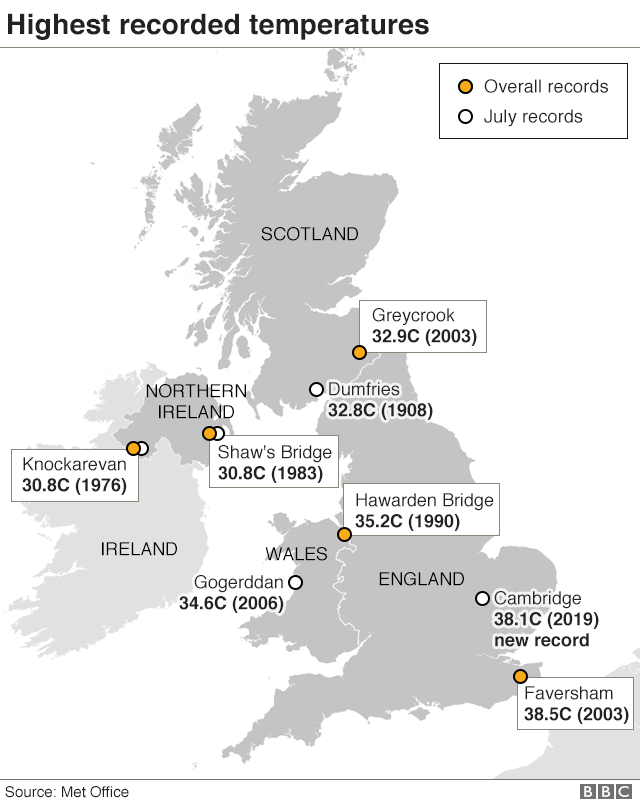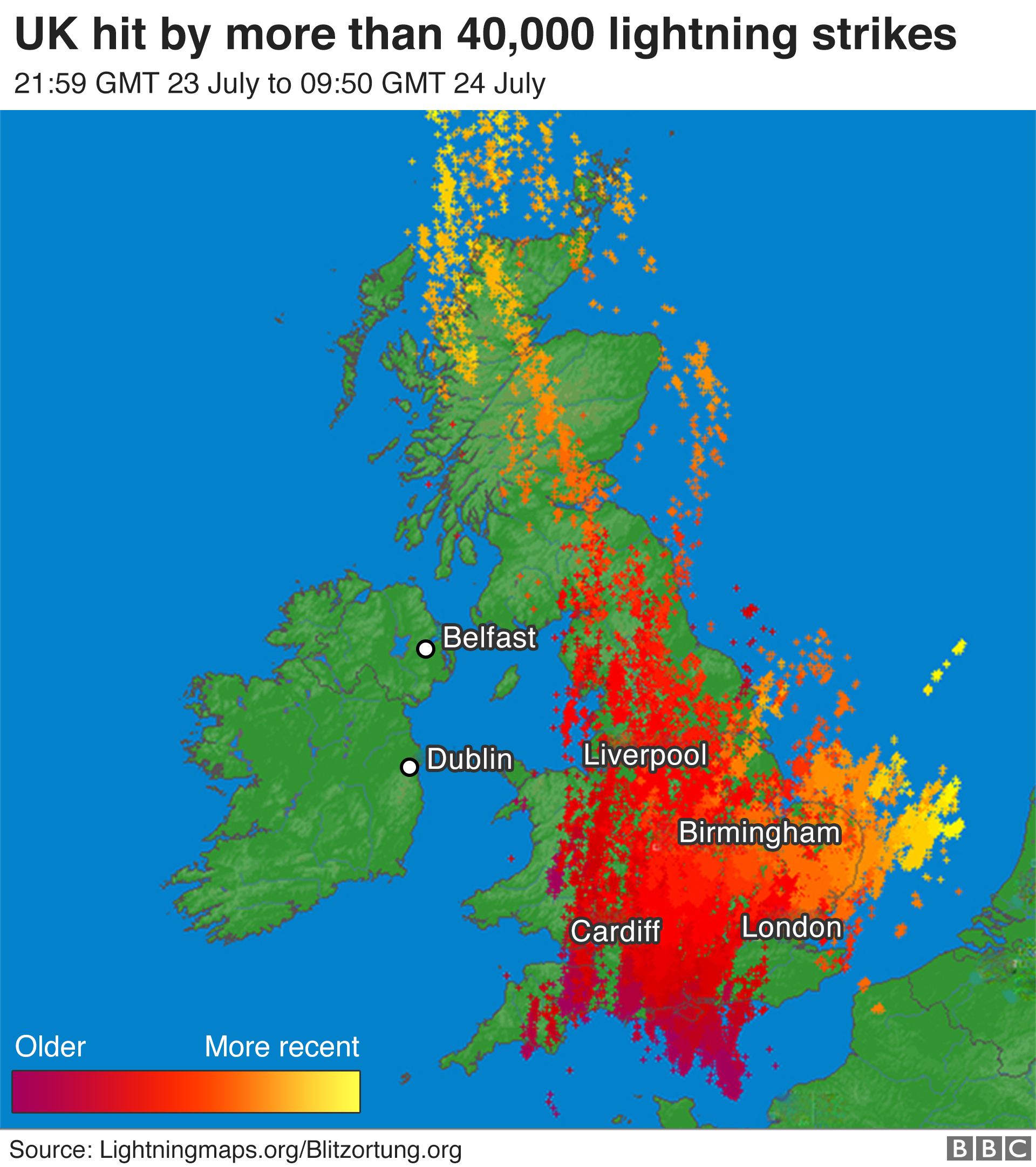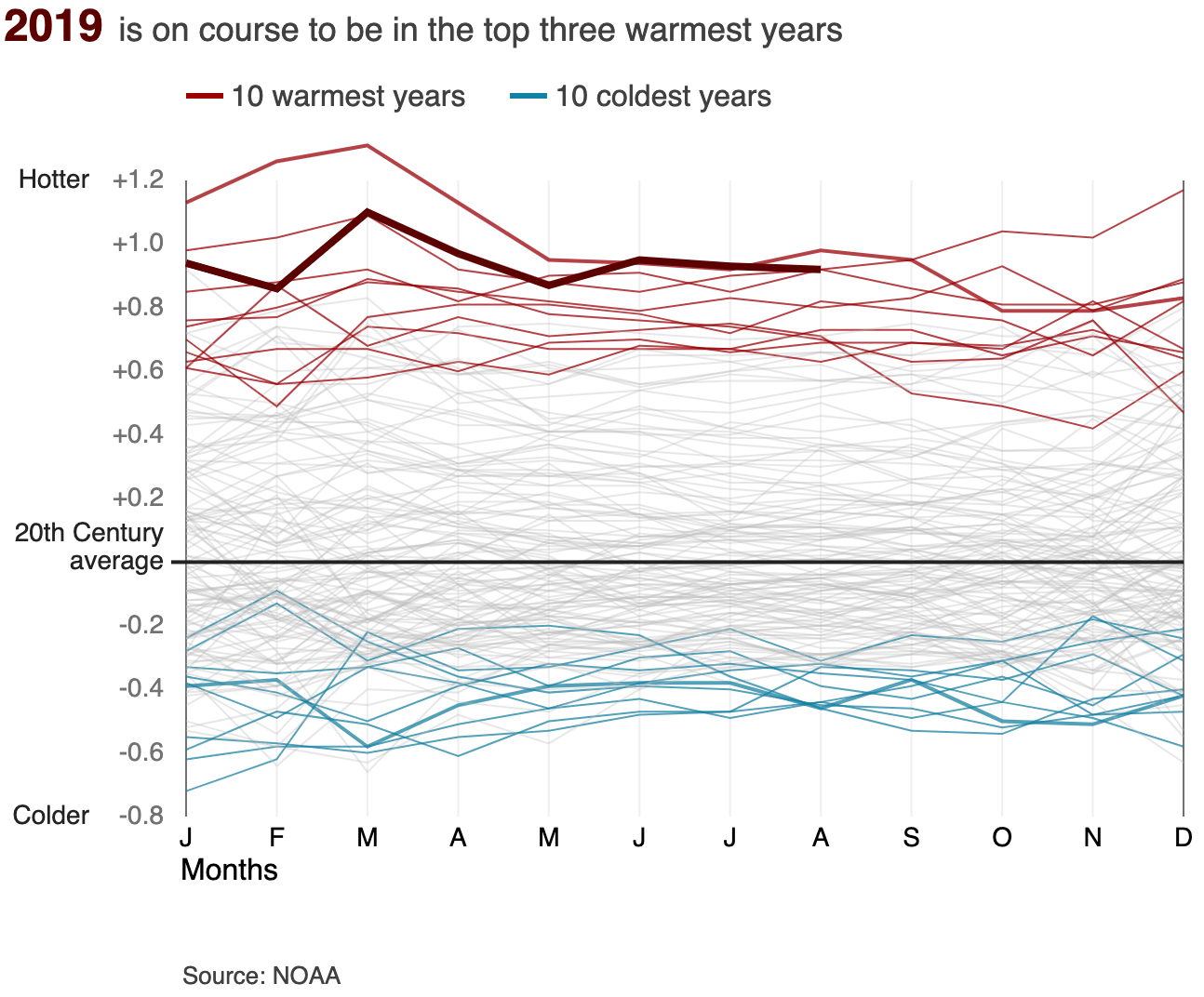UK weather: The UK's record-breaking heat in maps and charts
- Published

The UK has had its hottest July day on record - with temperatures reaching 38.1C in Cambridge on Thursday.
The all-time record in the UK still stands at 38.5C recorded at Faversham, Kent, in 2003.


So just how does the current hot spell compare?
The heat is rising
Only three of the top 10 hottest temperatures in the UK have been recorded in July, according to Met Office figures, the others were all in August.


Records could also be broken elsewhere. Northern Ireland has the lowest record high temperature - 30.8C reached in June 1976 and again in July 1983, at Knockarevan, in County Fermanagh, and Shaw's Bridge, Belfast, respectively.
Overnight records could be broken too
Temperatures have also been high overnight, approaching the all-time record of 23.9C, set in August 1990.
Met Office forecasters say temperatures overnight on Friday could hit a record-breaking 24C.
The high temperatures have triggered thunderstorms - with the UK hit by more than 40,000 lightning strikes overnight on 23-24 July.


More thunderstorms are expected from Thursday afternoon onwards - and a severe-weather warning has been issued for large parts of the UK.
This summer still has a long way to go before it can be compared with the summer of 1976 - when the UK was sweltering under temperatures above 30C for 18 days running and on 15 of those days temperatures topped 32C.
But heatwaves are becoming more common.
Last year's blazing summer in the UK was said by the Met Office to have been made 30 times more likely because of climate change.
Second heatwave in Europe this year
Temperatures have also been soaring across Europe. After the hottest June on record, several European countries are expected to hit new highs in the next couple of days.

The French city of Bordeaux has already hit its highest temperature since records began, registering 41.2C (106.1F) in the south-western city on Tuesday.
More records are expected to be broken in Belgium, Germany and the Netherlands, when the mercury is expected to reach 40C.
2018 was a record year across the globe
Summer 2018 in the UK was the equal-second warmest since 1910.
Both June and July 2018 saw daytime temperatures well above average, with readings above 30C in various parts of the country, as well as more sunshine than usual.
Last year also saw record high temperatures in many places across the world amid an unusually prolonged spell of hot weather.
Over the period shown on the map below (May to July 2018):
the yellow dots show where a heat record was broken on a given date
pink indicates places that were the hottest they had ever been in the month shown
dark red represents a place that was the hottest since records began
Sorry, your browser cannot display this map
And the temperature trend is upwards
The US National Oceanic and Atmospheric Administration (NOAA) confirmed that June 2019 was the hottest on record. Nine of the 10 warmest Junes have occurred since 2010.
The highest temperature recorded anywhere in the world was in Furnace Creek, Death Valley, in eastern California, where the mercury touched 56.7C on 10 July 1913. The second hottest temperature was reached in Kebili, Tunisia, where the thermometer showed 55C in July 1931.
But the third and fourth hottest world temperatures have been measured in more recent years - in Mitribah, Kuwait, on 21 July 2016, and Turbat, Pakistan, on 28 May 2017, when the heat measured 53.9 and 53.7C respectively.
This temperature comparison tool uses three-hourly forecast figures. For more detailed hourly UK forecasts go to BBC Weather.
If you can't see the calculator, tap here, external



